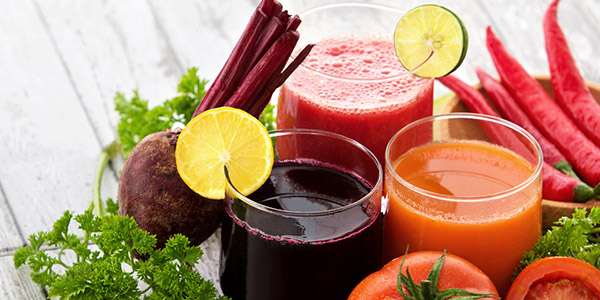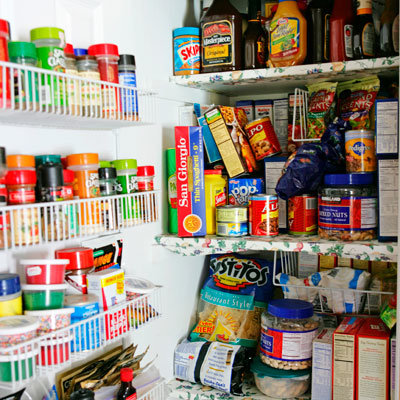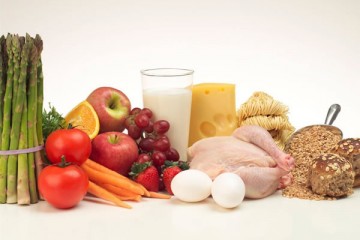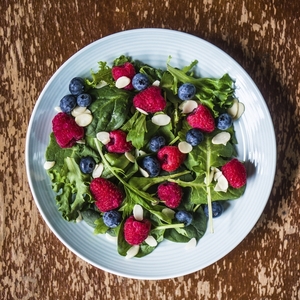Do Detox Diets Really Work?
Do Detox Diets Really Work?
Fat flush. Detox. Water fast. Juicing. Herbal supplements. When we hear detox, it might be unclear at first what you are actually detoxing ‘from’. It’s important to stop and take a moment to ask yourself—what exactly are you attempting to rid your system of? We have to answer this question first, before we can determine if detox diets really work.

Do Detox Diets Really Work?
Whether you choose a lemon juice and cayenne pepper detox diet, or a day-long water and herb detox diet, it’s important to be clear on what you are actually attempting to ‘get rid of’ in your body. Greasy foods, chemicals, pesticides, sauce-laden foods, saturated fats and just too much food in general are common things people are looking to remove from their body during a detox to lose weight.
We asked a few normal people a pretty simple question. “What are you detoxing from when you do a detox diet?” And here are some of our favorite answers.
“Greasy foods. And saucy-heavy-foods.”
“Saturated fats, drugs, alcohol, and chemicals.”
“You’re getting rid of toxins. Hence, detox.”
For most people, detoxing means getting rid of extra water, flushing fat, and removing digestive residue. Most people don’t equate ‘detoxing’ with dieting, however it can be difficult to detect what the difference really is between them. When asked what a detox diet really is…here’s how people responded.
“It’s putting in good things to expel bad things. Like a cleanse.”
“You have a buildup of bad, toxic stuff, so you need to clean your pipes.”
“It’s drinking lots of water, doing some mindful eating, skipping the caffeine and beer.”
Whether you have a clear vision of what a detox diet really is, or if you are the type of person to just sort of wing it—it’s important to clarify what a detox really is – and how to make sure you get the most of out of your efforts.
Fatty foods, toxins like alcohol and caffeine, as well as chemicals and pesticides in foods are common reasons why people start feeling ‘toxic’. And if your digestive tract is not moving properly, this can make a bad situation, even worse.
What ‘Detox’ really means
From a biology standpoint – detoxing happens day in and day out within your body cells. Your body is constantly working to remove harmful chemicals and byproducts of normal metabolism. Oxygen use and burning up energy and calories actually results in a lot of damaging molecules, which your body quickly breaks down. In order to breakdown these leftovers of metabolism, your body needs antioxidant vitamins and minerals, such as vitamin A, vitamin C, vitamin E, and selenium.
Detoxing to lose weight is usually a process of adopting a clean diet. When you are looking to drop a few pounds, undertaking a detox diet or getting rid of processed foods from your diet is a great way to clean up your system, and overall—this is a great habit to get into in order to transition into a healthy lifestyle. Most detox diets also recommend drinking lots of water, getting plenty of sleep, and performing light exercise like yoga or walking. This is one of the main reasons why detox diets really do work.
Detox vs. Fat Flush
The only way to ‘flush’ fat is to pull it from your fat cells in storage, and to deliver it to your liver to be broken down and used for energy. This means that a lower-carbohydrate diet is a must. Lots of detox diets require you to avoid caffeine, alcohol, drugs, and tobacco. Some also eliminate processed refined foods or ‘white’ foods like potato and pasta, or foods with added sugars. When you follow a lower carbohydrate diet, your body will not have as much insulin present in your bloodstream, which augments your efforts immensely. Insulin is a fat-storage hormone—and one that for some people will absolutely stop weight loss in its tracks.
Puffiness, water retention
If you feel like you need a detox because your eyes are swollen and your skin looks puffy, it’s a good idea to rehydrate yourself, and skip the alcohol for a while. Consuming lots of potassium-rich foods like cucumber, melons, celery, grapes, squash, yogurt and avocados will help your body keep water in the right places. Fresh fruit and vegetables are usually a mainstay in any detox diet, and consuming lots of these for good health is something you can do for a lifetime, not just for a ‘cleanse’. Using these foods will help ensure that your detox diet really works.
Fasting
Your body does perform a little bit of mitochondria-cleanup and gets rid of old proteins, cell parts, and hormones when you are fasting. But this doesn’t require a long-term fast, but this can begin to happen after only 6-8 hours. Eating fewer calories each day can also have this same ‘recycling’ effect, and caloric restriction has long been known to improve health, and may possibly increase longevity.
However, in order to truly detox your system, you require lean proteins in order to obtain amino acids as the building blocks of various enzymes and complexes that perform the detox work. So fasting only works well when you have a protein source on board each day. It’s also important to ensure you are getting plenty of b-vitamins, especially niacin, riboflavin, thiamin, vitamin B6, pantothenic acid, and choline, as these all assist your liver and body cells with energy production for cellular cleanup.
Herbs and Supplements for Detox
Lots of herbs and plant foods will help your liver clear itself of unhealthy residues. These plant ingredients can help your liver transition from stage 1 detoxification into stage 2 detoxification. Curcumin–an ingredient in curry powder—is a well-recognized compound that assists with detoxification enzymes in the liver. The Brassica family—which contains foods like broccoli, kale, Brussel sprouts, and cabbage—are excellent help when it comes time for your liver to do some self-cleanup. Fiber, especially soluble fiber found in foods like in oatmeal and apples, can help bind to and pull out digestive residues from your digestive tract. Consuming fiber-rich foods or taking a fiber supplement is normally recommended for a detox diet, and it’s really a good idea to do this on a regular basis to maintain normal digestive health.
To answer the question, “Do detox diets really work?”—overall, detox diets usually do work to help you lose weight. However, excessive fasting or eliminating protein for long periods of time can deter your efforts, so it’s a good idea to follow detox diets that don’t recommend those. Instead, consuming lots of fruits, vegetables, lean proteins and phytochemicals, as well as skipping the processed foods and doing some light exercise is a great way to detox for weight loss. Drinking plenty of water and getting lots of great sleep is a good idea every day – and definitely a good idea on a detox.
-
One Cup Of This Drink Clears Your Lungs And Boosts Your Immune System (RECIPE)
Numerous studies have pointed out that oats are one of the most va
-
Why You Should Start Your Day with Banana and a Cup of Warm Water
The “Inventor” of the fantastic breakfast consisting o
-
Drink This Green Beverage Every Day And Your Body Will Be Cleaned Of Toxins!
In the event that you need to convey your waistline to flawlessnes
-
Week Four: One Month into the Program and My Clothes are Getting Loose!
By Julie As my first month on the feel gr
-
Benefits of Low Carb Low Sugar Diet
A low carb, low sugar diet is based on t
-
Best Ways To Lose Weight
As a rule of thumb, embrace a healthy weight loss diet plan that is r
- DON'T MISS
- Some Useful Tips For Getting An Easy Weight Loss
- One Simple Teaspoon of This Will Help You Lose 3 Times More Body Fat
- Healthy Food Delivery Beats Packing on the Pounds
- Help Us Reach Our Feel Great Weight
- Say Goodbye To Belly Bloat Forever! Here Are 3 Simple Tips To Help You Flatten Your Stomach Starting Today
- 10 Items or Less: Common Grocery Items Get a Healthy Makeover
- What to Eat to Shrink Your Waist
- What Happens To Our Body When We Lose Weight?
- Healthy eating for a healthy body
- Week 15: Bad and Good




